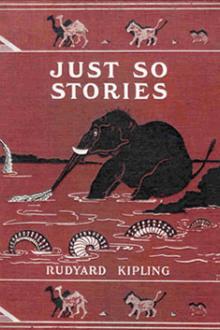The Bells of San Juan - Jackson Gregory (most read books TXT) 📗

- Author: Jackson Gregory
Book online «The Bells of San Juan - Jackson Gregory (most read books TXT) 📗». Author Jackson Gregory
Rod Norton's face went a flaming red with anger, his hand grew white upon the butt of the gun at his side.
"Some day, Jim Galloway," he said steadily, "I'll get you just as sure as you got Billy Norton!"
Galloway laughed and went out.
To Antone, Norton put the identical questions he had asked of Galloway, receiving virtually the same replies. Seeking the one opportunity suggesting itself into tricking the bartender, he asked at the end:
"Just before the shooting, when you and Galloway were talking and he told you that Bisbee was looking for trouble, why weren't you ready to grab him when he went for his gun?"
Antone was giving his replies as guardedly as Galloway had done. He took his time now.
"Because," he began finally, "I do not belief when Señor Galloway speak that . . ."
His eyes had been roving from Norton's, going here and there about the room. Suddenly a startled look came into them and he snapped his mouth shut.
"Go on," prompted the sheriff.
"I don't remember," grunted Antone. "I forget what Señor Galloway say, what I say. Bisbee say: 'Have a drink.' The Kid say: 'Go to hell.' Bisbee shoot, one, two, three, like that. I forget what we talk about."
Norton turned slowly and looked whither Antone had been looking when he cut his own words off so sharply. The man upon whom his eyes rested longest was a creased-faced Mexican, Vidal Nuñez, who now stood, head down, making a cigarette.
"That's all, Antone," Norton said. "Send the Kid in."
The Kid came, still sullen but swaggering a little, his hat cocked jauntily to one side, the yellow wisp of hair in his faded eyes. And he in turn questioned, gave such answers as the two had given before him.
Now for the first time the sheriff, stepping across the room, looked for such evidence as flying lead might have left for him. In the wall just behind the spot where Bisbee had stood were two bullet holes. Going to the far end of the room where the chair leaned against the table, he found that a pane of glass in the window opening upon the street had been broken. There were no bullet marks upon wall or woodwork.
"Bisbee shot two or three times, did he?" he cried, wheeling on the Kid. "And missed every time? And all the bullets went through the one hole in the window, I suppose?"
The Kid shrugged insolently.
"I didn't watch 'em," he returned briefly.
Galloway and Antone were allowed to come again into the room, and of Galloway, quite as though no hot word had passed between them, Norton asked quietly:
"Bisbee had a lot of money on him. What happened to it?"
"In there." Galloway nodded toward the card-room whose door had remained closed. "In his pocket."
A few of the morbid followed as the sheriff went into the little room. Already most of the men had seen and had no further curiosity. Norton drew the blanket away, noted the wounds, three of them, two at the base of the throat and one just above the left eye. Then, going through the sheepman's pockets, he brought out a handful of coins. A few gold, most of them silver dollars and half-dollars, in all a little over fifty dollars.
The dead man lay across two tables drawn together, his booted feet sticking out stolidly beyond the bed still too short to accommodate his length of body. Norton's eyes rested on the man's boots longer than upon the cold face. Then, stepping back to the door so that all in the barroom might catch the significance of his words, he said sharply:
"How many men of you know where Bisbee always carried his money when he was on his way to bank?"
"In his boots!" answered two voices together.
"Come this way, boys. Take a look at his boots, will you?"
And as they crowded about the table, sensing some new development, Galloway pushing well to the fore, Norton's vibrant voice rang out:
"It was a clean job getting him, and a clean job telling the story of how it happened. But there wasn't overmuch time and in the rush. . . . Tell me, Jim Galloway, how does it happen that the right boot is on the left foot?"
CHAPTER IV (AT THE BANKER'S HOME)
Rod Norton made no arrest. Leaving the card-room abruptly he signalled to Julius Struve, the hotel keeper, to follow him. In the morning Struve, in his official capacity as coroner, would demand a verdict. Having long been in strong sympathy with the sheriff he was to be looked to now for a frank prediction of the inquest's result. And, very thoughtful about it all, he gravely agreed with Norton; the coroner's jury, taking the evidence offered by Jim Galloway, Kid Rickard, and Antone, would bring in a verdict of justifiable homicide.
"Later on we'll get 'em, Roddy . . . mebbe," he said finally. "But not now. If you pulled the Kid it would just be running up the county expense all for nothing."
The sheriff left him in silence and leading his horse went the few steps to the hotel. Ignacio Chavez appearing opportunely Norton gave his animal into the breed's custody; Ignacio, accustomed to doing odd jobs for el Señor Roderico Nortone, and to the occasional half dollars resulting from such transactions, led the big gray away while the sheriff entered the hotel. It had been a day of hard riding and scanty meals, and he was hungry.
Bright and new and conspicuous, a gold-lettered sign at Struve's doorway caught his eye and caused him to remember the wounded left hand which had been paining him considerably through the long hot day. The sign bore the name of Dr. V. D. Page with the words Physician and Surgeon; in blue pencilled letters upon the practitioner's card, affixed to the brass chain suspending the sign, were the further words: "Room 5, Struve's Hotel."
The sheriff went to Room 5. It was at the front of the building, upon the ground floor. The door opened almost immediately when he rapped. Confronting him was the girl he had encountered at the arroyo. He lifted his hat, looked beyond her, and said simply:
"I was looking for Dr. Page. Is he in now?"
"Yes," she told him gravely. "Come in, please."
He stepped across the threshold, his eyes trained to quick observation of details taking in at a glance all there was to be seen. The room showed all signs of a fresh unpacking, the one table and two chairs piled high with odds and ends. For the most part the miscellany consisted of big, fat books, bundles of towels and fresh white napkins, rubber-stoppered bottles of varicolored contents, and black leather cases, no doubt containing a surgeon's instruments. Through an open door giving entrance to the adjoining room he noted further signs of unpacking with a marked difference in the character of the litter; the girl stepped quickly to this door, shutting out the vision of a helter-skelter of feminine apparel.
"It is your hand?" she asked, as in most thoroughly matter of fact fashion she put out her own for it. "Let me see it."
But for a moment he bestowed upon her merely a slow look of question.
"You don't mean that you are Dr. Page?" he asked. Then, believing that he understood: "You're the nurse?"
"Is a physician's life in San Juan likely to be so filled with his duties that he must bring a nurse with him?" she countered. "Yes, I am Dr. Page."
He noted that she was as defiant about the matter as the Kid had been about the killing of Bisbee of Las Palmas; plainly she had foreseen that the type of man-animal inhabiting this out-of-the-way corner of the world would be likely to wonder at her hardihood and, perhaps, to jeer.
"I came to-day," she explained in the same matter-of-fact way. "Consequently you will pardon the looks of things. But I am one of the kind that believes in hanging out a shingle first, getting details arranged next. Now may I see the hand?"
"It's hardly anything." He lifted it now for her inspection. "Just a slight cut, you know. But it's showing signs of infection. A little antiseptic . . ."
She took his fingers into hers and bent over the wound. He noted two things, now: what strong hands she had, shapely, with sensitive fingers ignorant of rings; how richly alive and warmly colored her hair was, full of little waves and curls.
She had nothing to say while she treated him. Over an alcohol lamp she heated some water; in a bowl, brought from the adjoining room, she cleansed the hand thoroughly. Then the application of the final antiseptic, a bit of absorbent cotton, a winding of surgeon's tape about a bit of gauze, and the thing was done. Only at the end did she say:
"It's a peculiar cut . . . not a knife cut, is it?"
"No," he answered humorously. "Did it on a piece of lead. . . . How much is it, Doctor?"
"Two dollars," she told him, busied with the drying of her own hands. "Better let me look at it again in the morning if it pains you."
He laid two silver dollars in her palm, hesitated a moment and then went out.
"She's got the nerve," was his thoughtful estimate as he went to his corner table in the dining-room. "But I don't believe she is going to last long in San Juan. . . . Funny she should come to a place like this, anyhow. . . . Wonder what the V stands for?"
At any rate the hand had been skilfully treated and bandaged; he nodded at it approvingly. Then, with his meal set before him, he divided his thoughts pretty evenly between the girl and the recent shooting at the Casa Blanca. The sense was strong upon him as it had been many a time that before very long either Rod Norton or Jim Galloway would lie as the sheepman from Las Palmas was lying, while the other might watch his sunrises and sunsets with a strange, new emotion of security.
The sheriff, who had not eaten for twelve hours, was beginning his meal when the newest stranger in San Juan came into the dining-room. She had arranged her lustrous copper-brown hair becomingly, and looked fresh and cool and pretty. Norton approved of her with his keen eyes while he watched her go to her place at a table across the room. As she sat down, giving no sign of having noted him, her back toward him, he continued to observe and to admire her slender, perfect figure and the strong, sensitive hands busied with her napkin.
A slovenly, half-grown Indian girl, Anita, the cook's daughter, came in from the kitchen, directed the slumbrous eyes of her race upon the sheriff who fitted well in a woman's eye, and went to





Comments (0)